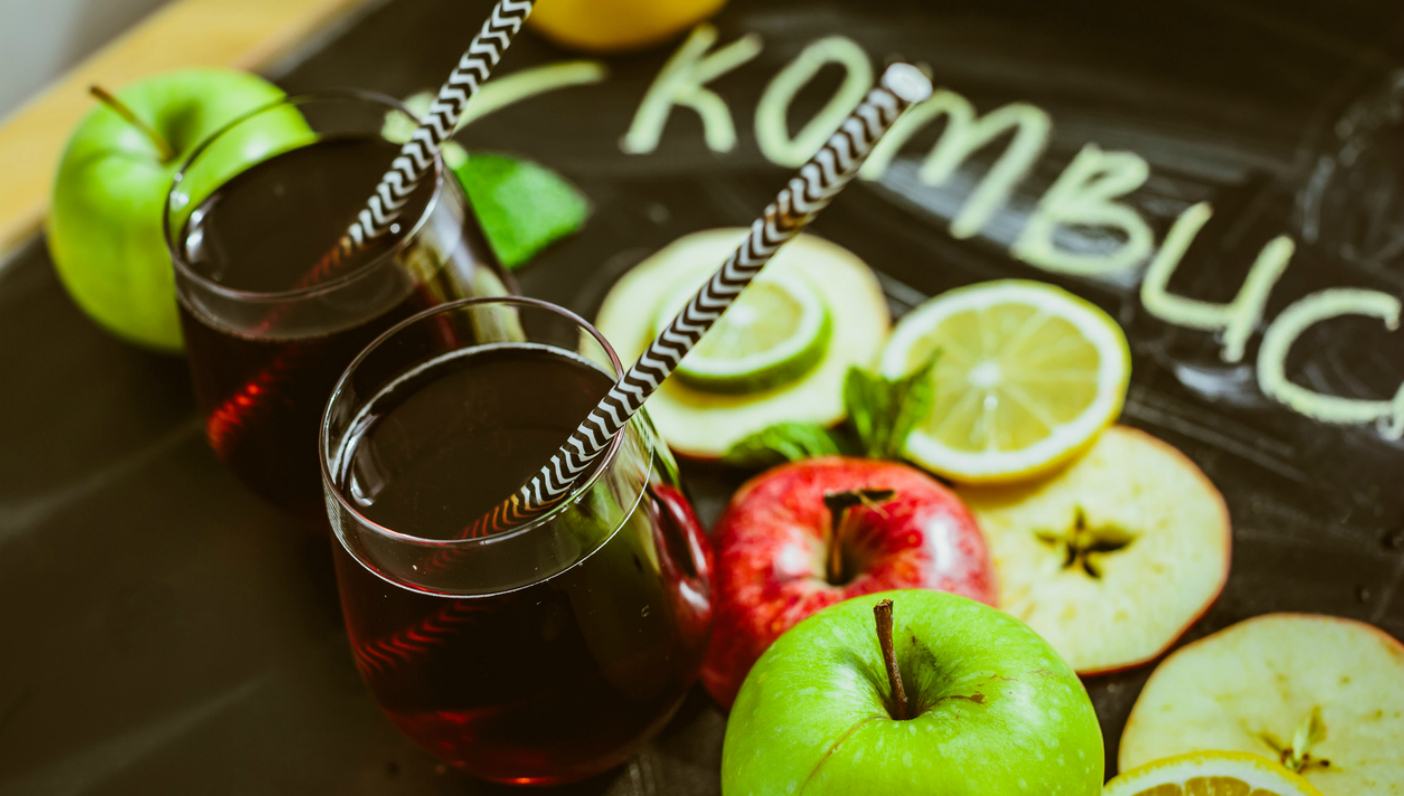
Walking into the neighborhood deli or local market, you’ll likely notice a long row of colorful bottles promising flavor and good health. Take a sip and you’ll discover the drink is more than just a fancy logo; it’s an effervescent elixir with a unique and art sweetness. Friends and yogis, meet Kombucha.
One of the most beloved beverages to currently swarm the shelves, kombucha is quickly becoming a staple in the American diet. The history and lore of kombucha imply an element of magic, with some sources reporting it’s prominence in Chinese sacred rituals of atonement. After World War Two, German doctors used the drink to treat cancer patients, metabolic disorders, high blood pressure, and diabetes.
Today it’s simply known as a fermented tea, made by adding a culture of bacteria and yeast to a mixture of brewed tea and sugar. And with high amounts of B vitamins, antioxidants, and amino acids, it’s easy to see why kombucha is becoming so popular among our beverages.
The tea is fermented through the help of a SCOBY, or “symbiotic culture of bacteria and yeast.” When combined, the SCOBY eats most of the bacteria within the tea. The SCOBY tends to be the bit that intimidates folks from trying kombucha, which makes sense because it’s totally weird. A SCOBY is rubbery and slippery, and floats at the top of the tea with brown stringy bits that dangle from the bottom. Unpasteurized kombucha offers a myriad of probiotics, which are “good” bacteria that help keep the gut working to the top of its A-game.
What Makes It Healthy
Kari Crowley, a kombucha enthusiast and three-year home brewer, originally started drinking this effervescent elixir to help with her digestive issues. She found that the probiotics in kombucha helped her fight off infections, and noticed a dramatic decrease in her sensitivity to the infections after developing a kombucha habit.
“For me, kombucha is kind of a detox. When I’ve been eating too much junk food or dairy, I turn to kombucha to help clear everything out,” Kari reports.
She isn’t alone. Many folks incorporate kombucha into their diets for the probiotic benefits. In addition to probiotics, kombucha offers high amounts of antioxidants known for their ability to counteract any free radicals wreaking havoc in the digestive system. For those looking to avoid dairy in their diets, kombucha is a lactose-free way of adding in probiotics.
Exploding Popularity
Stores and breweries all over the country are responding to the high demand for this fizzy favorite. Kombucha Brooklyn, located in its namesake, even offers DIY kombucha kits, as well as a blog dedicated to answering questions anyone might have regarding the process. Customers even have the option of selecting their specific tea, including choices such as classic flavors like jasmine green and traditional black, along with some more wild ones like orange star and black cherry.
So the next time you’re searching the store for something sweet with the added benefit of a health kick, consider testing out a bottle. Another benefit of kombucha is that it now comes in a variety of brands of flavors, so you can find something that fits with your preferences.
Not into kombucha? You can get your probiotics an easier way. Check out the probiotic supplements from our friends at Florastor for more.
In partnership with Florastor
Florastor® complements your active lifestyle by strengthening your digestive balance and supporting a healthy immune system. When you have healthy digestion, you have greater freedom to engage in the activities you love. Whether you’re training for a marathon or pushing your mind and body to new limits on the yoga mat, Florastor helps to keep you driven, confident, and strong. This is what it means to be Biotic.
